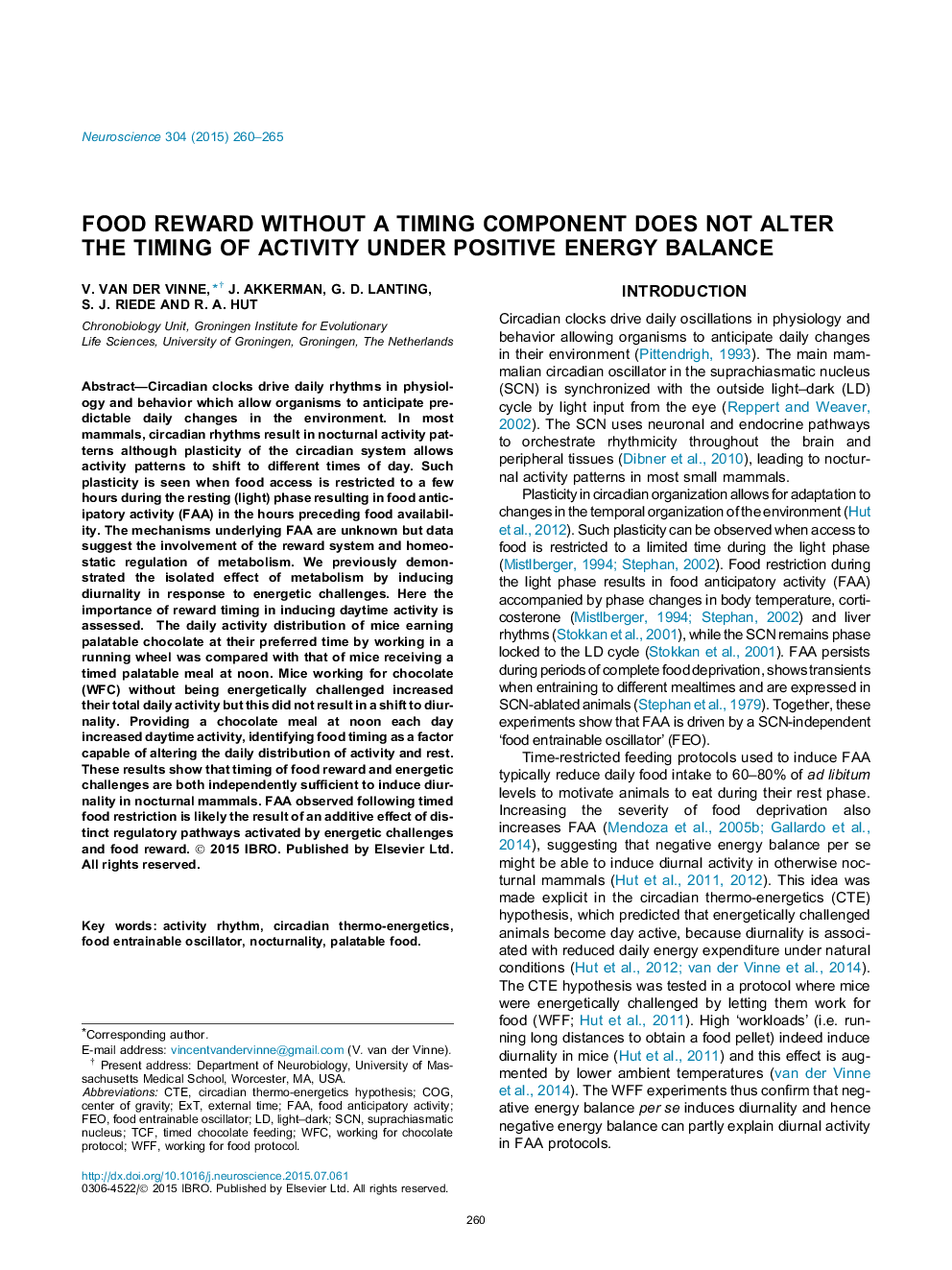| Article ID | Journal | Published Year | Pages | File Type |
|---|---|---|---|---|
| 6272409 | Neuroscience | 2015 | 6 Pages |
Abstract
The daily activity distribution of mice earning palatable chocolate at their preferred time by working in a running wheel was compared with that of mice receiving a timed palatable meal at noon. Mice working for chocolate (WFC) without being energetically challenged increased their total daily activity but this did not result in a shift to diurnality. Providing a chocolate meal at noon each day increased daytime activity, identifying food timing as a factor capable of altering the daily distribution of activity and rest. These results show that timing of food reward and energetic challenges are both independently sufficient to induce diurnality in nocturnal mammals. FAA observed following timed food restriction is likely the result of an additive effect of distinct regulatory pathways activated by energetic challenges and food reward.
Keywords
Related Topics
Life Sciences
Neuroscience
Neuroscience (General)
Authors
V. van der Vinne, J. Akkerman, G.D. Lanting, S.J. Riede, R.A. Hut,
